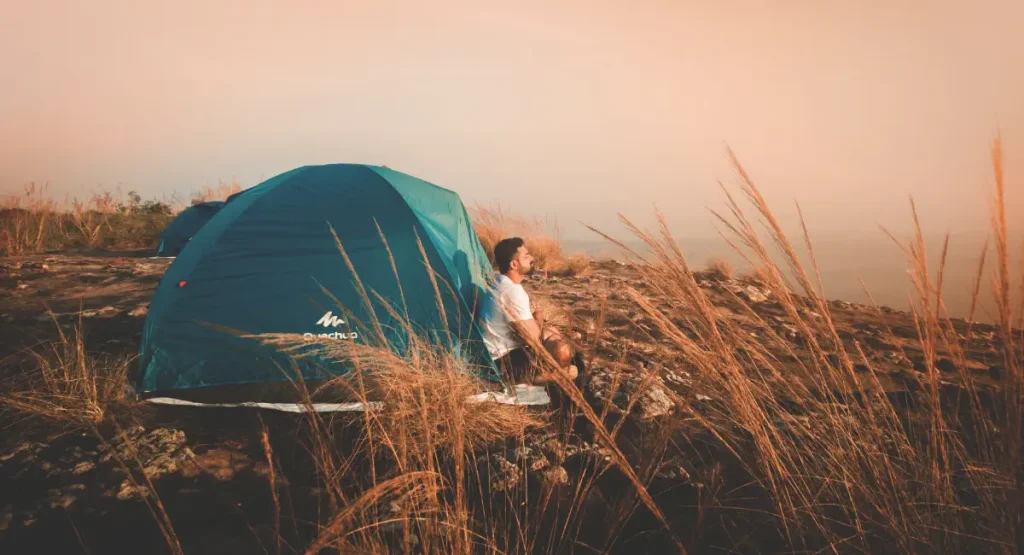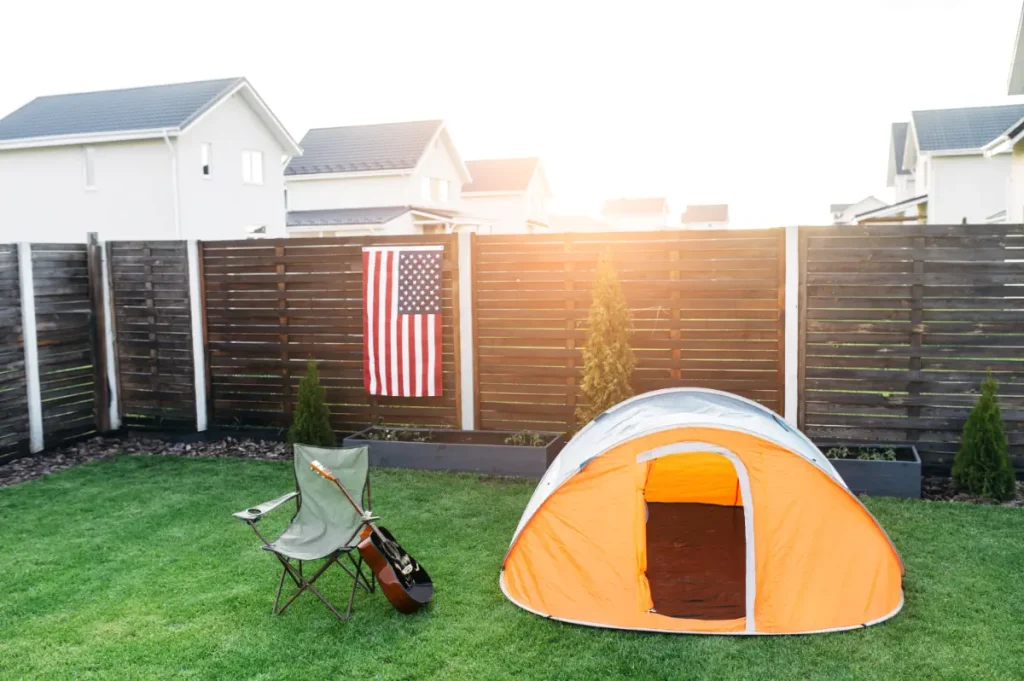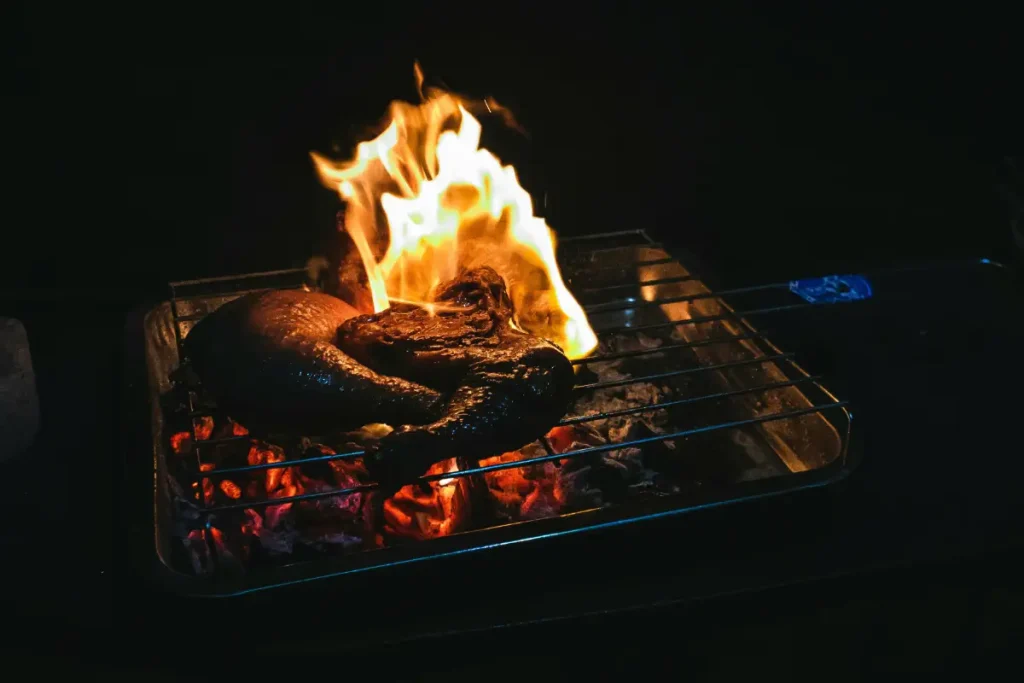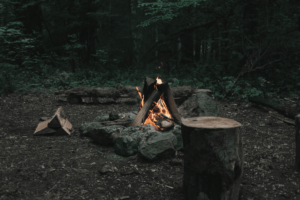Going on your first camping trip offers a unique opportunity to connect with nature, unwind from the hustle and bustle of daily life, and create lasting memories with friends and family.
Maybe it started as a New Year’s Resolution or a desire to get out into the outdoors. You’ve never done it, you don’t know where to start and you probably don’t know what you need. If you are new to camping, the process of planning and preparing for your maiden trip might appear daunting. Here are some tips for overcoming your initial fear, planning your trip and making breaking down the basics of camping to ensure your first trip is nothing short of unforgettable fear not! See my latest article: Hiking for Beginners.

Tap into your Friends, Family & Social Groups
Leveraging Personal Networks for Insightful Tips
Before diving into the specifics of camping gear and locations, it’s a good idea to talk to friends or family who have gone camping. Their personal experiences can provide invaluable insights, especially about local spots, must-have gear, and practical tips that might not be obvious to first-timers. This firsthand advice can not only boost your confidence but also help tailor your camping adventure to suit your preferences and expectations.
Exploring Online Communities and Camping Clubs
In addition to seeking advice from your personal network, consider tapping into the wealth of knowledge available in online communities and camping clubs. Joining Facebook groups dedicated to camping and outdoor activities can connect you with a broader community of camping enthusiasts. These platforms are ideal for seeking recommendations, sharing experiences, and even finding companions for your camping adventures. Similarly, local camping clubs often organize group trips and workshops, providing a supportive environment for beginners to learn and grow.
Shout out to my favorite group, r/camping, on Reddit!
The Allure of Camping: Why Should You Go?
Camping isn’t just about spending a night under the stars; it’s a holistic experience that benefits your mental and physical well-being. It’s a chance to break away from the relentless grip of technology and immerse yourself in the tranquility of the outdoors. Beyond the mental peace it offers, camping is an affordable way to travel, discover new destinations, and is suitable for individuals of all ages.

Selecting the Perfect Spot: Navigating Through Camping Locations
When it comes to choosing a camping location, you’re presented with a plethora of options, each with its unique offerings and comfort levels. Understanding these differences is key:
- National and State Parks: Renowned for their well-maintained campsites, these parks typically provide basic amenities like restrooms, picnic tables, and fire pits.
- Private Campgrounds: These sites often feature additional facilities such as swimming pools and playgrounds, offering a more luxurious camping experience, albeit at a higher cost.
- Dispersed Camping: For those seeking solitude, dispersed camping on public lands offers a more rugged, off-the-grid experience, devoid of conventional facilities.
- Your Own Backyard: There is nothing wrong with planning your first camping trip right in your own backyard. It is a great place to give it a try, knowing your are only steps away from the comfort and safety of your own home. It is also a great way to get familiar with all of your gear before heading out into the wild.
When picking your spot, consider the distance from home (especially if it’s your first time), the terrain and its suitability to your physical capabilities, and the anticipated weather conditions during your stay.
The Essentials of Camping Gear: Packing Right
A successful camping trip hinges on having the right gear. Before you embark on your first camping adventure, explore the Different Types of Camping to find the style that best suits you. Here’s a quick rundown of the essentials:
- Shelter: Invest in a spacious, easy-to-assemble tent appropriate for the weather you’ll encounter. Practice setting it up at home to avoid any campsite struggles. It might also be wise to familiarize yourself with basic shelter skills in case of emergency.
- Sleeping Arrangements: Choose a sleeping bag rated for the lowest temperatures you might face to ensure a cozy night’s sleep.
- Cooking Essentials: When planning your meals, having the right cooking equipment makes all the difference. See my guide to essential cooking gear for car camping to get started.”
Don’t forget to pack clothing suitable for the weather and planned activities, along with personal items like toiletries, sunscreen, insect repellent, and a first aid kit.

Planning and Preparation: Laying the Groundwork for Your Trip
Advance planning can make or break your camping experience:
- Reservations: Book your campsite well ahead of time, especially during peak seasons.
- Meal Prep: Plan and pack meals that are easy to cook and store. A cooler with ice packs is essential for perishable items as is a water supply.
- Entertainment: Research the area for activities like hiking or swimming. Pack books, games, or other forms of entertainment for leisure moments at the campsite.
Staying Safe: Essential Tips for a Secure Camping Experience
Safety should always be a top priority:
- Wildlife Interactions: Maintain a safe distance from animals, securely store food, and never feed wildlife.
- Fire Management: Adhere to campfire regulations, use designated pits, and ensure your fire is completely extinguished when not in use.
- Personal Safety: Equip yourself with a comprehensive first aid kit (I recommend this one, the Carlebben EMT Pouch, usually around $30), learn basic first aid techniques, inform someone about your travel plans, and carry a whistle or signaling device.
Last Edited: March 16, 2025
